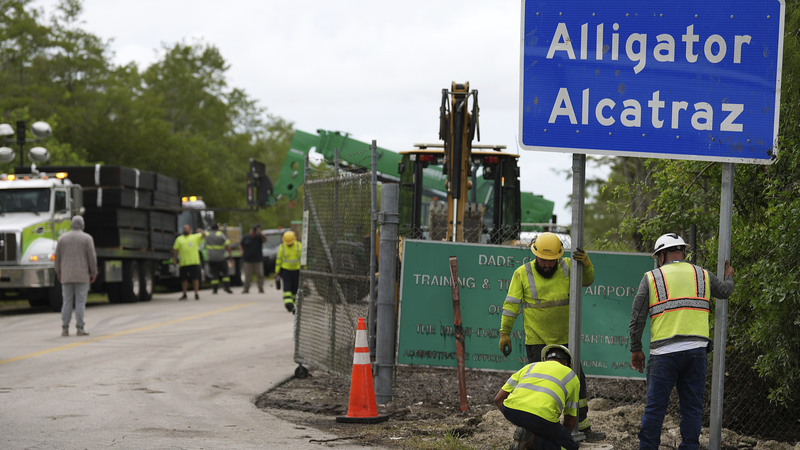A Quick Overview
Dubbed "Alligator Alcatraz," Florida's newest detention center in the Everglades began housing its first detainees under the U.S. Department of Homeland Security's latest deportation push. Tricia McLaughlin, assistant secretary at DHS, confirmed that detainees started arriving "last night," part of a strategy she calls "turbo speed" in expanding bed space and facilities nationwide.
Built at Breakneck Speed
Completed in just eight days, the center boasts over 200 security cameras, 28,000 feet of barbed wire, and a contingent of 400 security personnel. When fully operational, it can hold up to 3,000 detainees, according to Florida Governor Ron DeSantis. Such rapid construction raises questions about cost, oversight, and long-term impact.
Environmental and Human Rights Concerns
Environmental groups have already filed a lawsuit challenging the project, arguing that officials bypassed crucial regulations and threatened the Everglades' fragile ecosystem. Native American tribes add that the site sits on land they consider sacred. Advocates warn of harsh conditions inside the center, pointing to extreme heat, mosquito-borne illnesses, and limited medical care.
Global Implications
Globally minded young people watching from afar can spot echoes of similar debates over migration policy, human rights, and environmental justice. From Europe's border fences to Asia's migrant labor camps, countries grapple with balancing security and compassion. Alligator Alcatraz shines a spotlight on how fast policy decisions can intersect with nature and culture.
As this story unfolds, it raises a question for all of us: How can societies uphold human dignity while addressing real policy challenges at speed? Join the conversation below.
Reference(s):
First immigrant detainees arrive at 'Alligator Alcatraz': reports
cgtn.com



